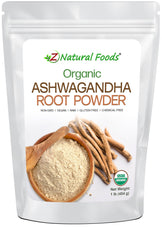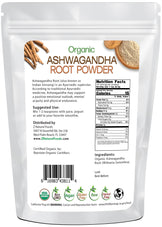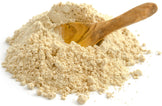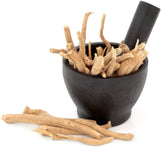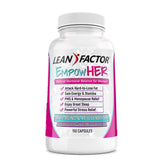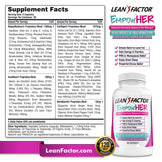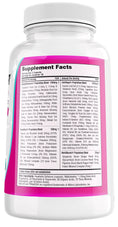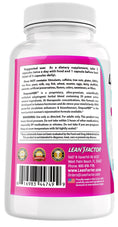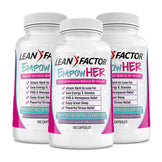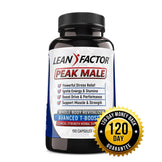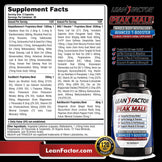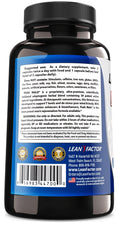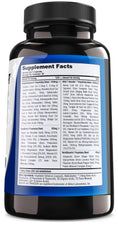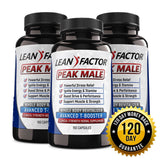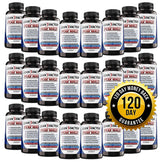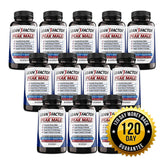Description
Description
The holiday time is just around the corner, and with the holidays comes good food and great family time.
But it is also the time of the year when stress levels are at their highest.
Here is a little holiday ‘gift of knowledge’ to help put our lives in perspective during this Holiday season.
Q: How do you define stress?
A: Stress is the body’s response to a variety of external factors that have a direct compounding effect on one’s physical and mental well being and outlook on life.
Q: How do you define a stressor?
A: There are two ways to answer this question. First, is to simply define in general terms what stressors are. Stressors are external influences like relationships, work and environmental factors that produce overwhelming effects with the potential of causing a chronic state of imbalance to one’s system.
The second way to answer this question is to understand that stressors are also defined as triggers. Triggers are a more personal version of a stressor to an individual and are often due to emotional trauma. Because triggers are very personal, they have the potential to cause great physical and mental anguish. An example would be to look at one’s work environment as the stressor and a specific coworker as the trigger. Some folks can deal with a stressful work environment with no problem, add in that trigger, and now it becomes too much.
One of the keys to lowering stress levels is to try and identify your personal triggers.
Q: Is there a difference between physical and emotional stress, and which one manifests first?
A: While it may seem complex, there is in fact a very simple answer. Every individual responds to both mental and physical stressors differently. Because they both play off each other, they have the potential to cause equal amounts of damage.
Would you prefer a category 5 hurricane or a 7.0+ earthquake? I think we can all agree, they are both very dangerous and will do a good amount of damage. The answer is very much based on the individual and how strong their constitution is. Everyone has inherent weaknesses so therefore, how the effects of stress manifest (physically or mentally) is based on those weaknesses.
For example, take a member of the Navy Seals. These folks are some of the most mentally tough individuals is the world. They are trained to overcome many different physical and mental obstacles. How the effects of stress manifests on an individual of this nature would be very different from someone who has not had this type of training. To be clear, this does not mean that a Navy Seal does not get affected or triggered by stressors, it just takes more to affect them.
Q: What does the term “healthy stress response” mean?
A: A healthy stress response is referring to how we deal with and respond to daily stressors. When stress occurs, a wide variety of reactions and responses happen in the body. For example, if you were about to be attacked, your body goes into “fight or flight” mode. In this mode your heart rate increases in order to pump blood to your muscles which will allow you to fight or run for your life.
The sole purpose for these responses is protection and survival of the body. The fight or flight mode is a very aggressive response. To stay in this mode for longer than necessary can cause great damage to the body. Under normal circumstances once the threat is gone, the body goes into rest and digest mode, in order to prevent further damage. If we live a stressful life, then we are often stuck in a chronic state of stress. Over time, this leads to our body’s inability to respond to stress in a healthy manner. A healthy stress response is the body’s ability to go from a ‘fight or flight’ state to a ‘rest and digest’ state as efficiently as possible.
Q: How does the expressions “fight or flight” and “rest and digest” relate to the stress response?
A: Our nervous system is made up of the sympathetic response known as fight or flight and the parasympathetic response known as rest and digest. Those that live a high stress lifestyle and don’t deal well with all of the stressors are known to be sympathetic dominant. A healthy stress response would entail your ability to go from a threatened state (sympathetic) to a relaxed state (parasympathetic) in a fast and efficient manner. As chronic stress begins to take its toll on the body, your body becomes less efficient at turning that switch on and off. This results in the body’s inability to have a healthy stress response which in turn results in a cascade of negative actions in the body.
Q: What are adaptogens and how do they play a role in one’s stress response?
A: Adaptogens are a classification of herbs that provide the body with the nourishment and support it needs in order to support a healthy stress response. Unlike medicinal herbs, adaptogens support a broad-range healing response and don’t focus on one specific system.
Adaptogens are put into this classification because they are known to have a variety of compounds that have been studied to support the long term effects of both mental and physical stress on the body.
Q: If you had to pick one adaptogen to take that Z Natural Foods sells, what would it be?
A: My choice would be ashwagandha. This adaptogen not only has a very impressive history, but is also well studied, and backed up by solid research for a multitude of stress related conditions!
Until next week, enjoy your Holidays and a healthy stress response!
Mike
About Michael Stuchiner
 Michael Stuchiner is an experienced Master Herbalist, the Head of Education for Z Natural Foods, a teacher and an accomplished author. With a 16-year specialization in medicinal herbs, Mike also has a vast knowledge in tonic and adaptogenic herbalism. Mike has enjoyed a 25-year career as an elite-level competitive powerlifter where he learned to heal his ‘mind and body’ as an avid user of herbal remedies.
Michael Stuchiner is an experienced Master Herbalist, the Head of Education for Z Natural Foods, a teacher and an accomplished author. With a 16-year specialization in medicinal herbs, Mike also has a vast knowledge in tonic and adaptogenic herbalism. Mike has enjoyed a 25-year career as an elite-level competitive powerlifter where he learned to heal his ‘mind and body’ as an avid user of herbal remedies.
As an “in-the-trenches” herbalist, Mike has done more than 85 speaking engagements, consulted with clients ranging from young to elderly, worked with athletes in virtually all sports and with clients who have “dis-ease” states of a wide variety. Mike also mentors student Master Herbalists and will continue to teach the next generation to grow a deeper wisdom of the human body through appropriate herbal remedies.
For Bulk inquiries and custom formulations click here: https://www.znaturalfoods.com/pages/bulk
References
- Choudhary B, Shetty A, Langade DG, (2015). Efficacy of Ashwagandha (Withania somnifera [L.] Dunal) in improving cardiorespiratory endurance in healthy athletic adults. AYU 36(1):63-8. doi: 10.4103/0974-8520.169002.
- Dongre S, Langade D, Bhattacharyya S, (2015), Efficacy and safety of Ashwagandha Root Extract in Improving Sexual Function in Women. A Pilot Study. Biomed Res Int. 2015;2015:284154. doi: 10.1155/2015/284154.
- Candelario M1, Cuellar E1, Reyes-Ruiz JM2, Darabedian N3, Feimeng Z3, Miledi R2, Russo-Neustadt A1, Limon A4. Direct evidence for GABAergic activity of Withania somnifera on mammalian ionotropic GABAA and GABAρ receptors. J Ethnopharmacol. 2015 Aug 2;171:264-72. doi: 10.1016/j.jep.2015.05.058. Epub 2015 Jun 9.
- Wankhede S1, Langade D2, Joshi K3, Sinha SR4, Bhattacharyya S5. Examining the effect of Withania somnifera supplementation on muscle strength and recovery: a randomized controlled trial. J Int Soc Sports Nutr. 2015 Nov 25;12:43. doi: 10.1186/s12970-015-0104-9. eCollection 2015.



